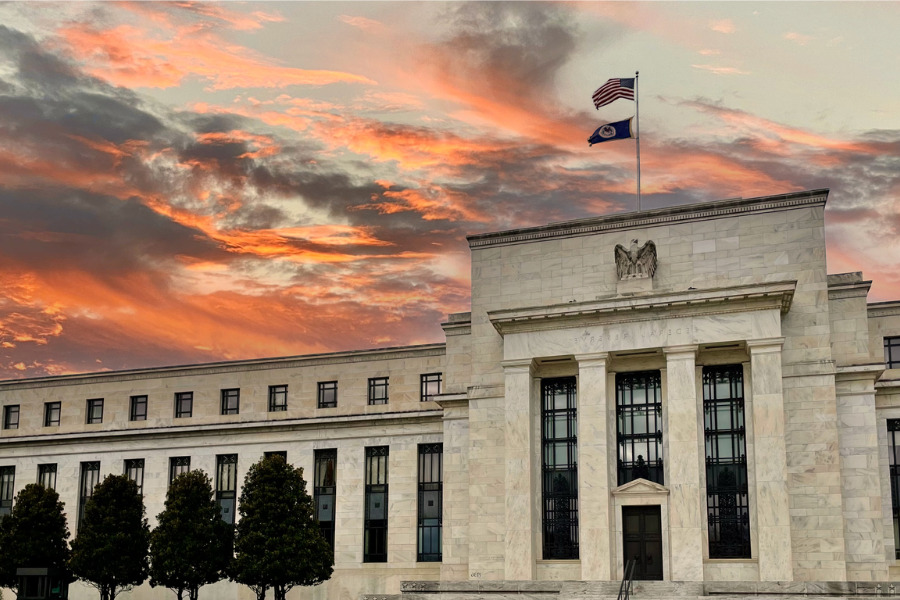

It always seems to be a favorite sport of investment professionals to “fight the Fed.” The constant ridicule that a mistake is imminent, that policy is all wrong, that they are too slow or too fast is a permanent presence in market and economic commentary.
While no individual or group can always be right, I view the Federal Reserve members as some of the most brilliant economic and market minds in the world.
Through decades of economic fluctuations, one mantra has stood the test of time: "Don't Fight the Fed." This adage, echoing through trading floors and investment firms for over half a century, underscores a fundamental truth about the Federal Reserve's influence over the market's ebbs and flows.
Critics often forecast doom with every policy announcement. Yet, rate cuts and hikes are always part of a broader, well-informed strategy to balance its dual mandate of promoting maximum employment and ensuring price stability.
A look back and forward
To put things into perspective, the Federal Reserve has handled recent rate hikes like they’ve handled circumstances since 2008, and I expect the same this year.
Since the Global Economic Crisis, the Fed has significantly expanded its arsenal of monetary tools. Beyond traditional rate adjustments, it has innovated with quantitative easing, reverse repo operations, and novel bank financing techniques.
These tools have been crucial in navigating recent economic turmoil triggered by global events. The Fed's willingness to adapt and employ these tools showcases its proactive stance in managing an increasingly volatile economic landscape.
There is a rightful concern about the issue of accountability. The Fed has sovereign-like power but is not controlled by elected officials or even elected democratically. Concerns also stem from their sheer level of influence. The Fed is a very powerful body, and their perspectives are very influential on short- and long-term global economics and finances. Every meeting and policy decision, while they vary in magnitude, makes a splash.
However, these points provide further reason to closely monitor the activity of the Federal Reserve and listen closely to their rationale, not pursue unfounded criticism and throw decades of historical evidence out the window.
Embracing the cliché
Writer William Gibson once said that “cliches became cliches for a reason; that they usually hold at least a modicum of truth.”
To apply this philosophy to the phrase “Don’t Fight the Fed,” even if you’re sick and tired of hearing it, ideas like this that have been around for as long as they have help us simplify the vast complexity of the market. This phrase is bolstered by historical evidence and helps us cut through the short-term noise.
Time and time again, people don’t embrace the cliché because they don’t trust the Fed. Critics question their intellect, their capacity to adapt to current times and events, and equate their competence to that of out-of-touch politicians.
However, the beauty is that the Fed is not a political animal. It is, by its construction, an apolitical body. Their decisions are informed by the goal of economic stability.
What the future holds
Investors fixated on the Fed's every move may miss the forest for the trees. While each meeting and announcement holds significance, adopting a broader perspective can provide a clearer understanding of the Fed's long-term strategy. The Fed's historical actions, especially in times of crisis, demonstrate a commitment to adapting and innovating in response to every economic challenge.
As we look ahead, the evolution of monetary policy tools, including potential advancements like a digital dollar, suggests that the Fed will continue to play a crucial role in shaping the economic landscape.
Some consequences are inevitable, but I’m confident that wherever rates may be in one, two, five, or 10 years, the Fed and the tools at its disposal have always intended and repeatedly succeeded in stabilizing and balancing the nation’s economy. Wherever you invest, fighting this idea has always proven to be an act of pride, folly, or both.
Kevin Philip joined Bel Air in 2002 and is responsible for providing investment advice to individuals, families, and foundations. As a member of the firm’s investment committee, Kevin has in-depth experience with asset allocation modeling and asset manager evaluation in addition to estate structuring. Prior to joining Bel Air, Kevin worked at Morgan Stanley and the U.S. State Department in Berlin.

Since Vis Raghavan took over the reins last year, several have jumped ship.

Chasing productivity is one thing, but when you're cutting corners, missing details, and making mistakes, it's time to take a step back.

It is not clear how many employees will be affected, but none of the private partnership's 20,000 financial advisors will see their jobs at risk.

The historic summer sitting saw a roughly two-thirds pass rate, with most CFP hopefuls falling in the under-40 age group.

"The greed and deception of this Ponzi scheme has resulted in the same way they have throughout history," said Daniel Brubaker, U.S. Postal Inspection Service inspector in charge.
Stan Gregor, Chairman & CEO of Summit Financial Holdings, explores how RIAs can meet growing demand for family office-style services among mass affluent clients through tax-first planning, technology, and collaboration—positioning firms for long-term success
Chris Vizzi, Co-Founder & Partner of South Coast Investment Advisors, LLC, shares how 2025 estate tax changes—$13.99M per person—offer more than tax savings. Learn how to pass on purpose, values, and vision to unite generations and give wealth lasting meaning
